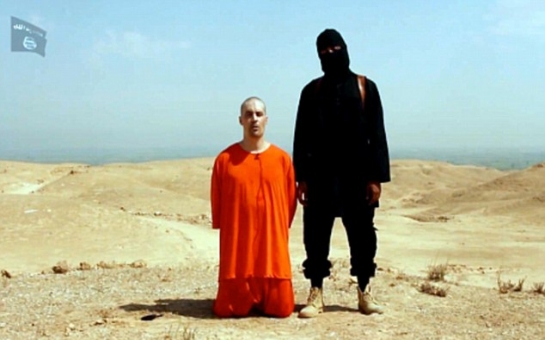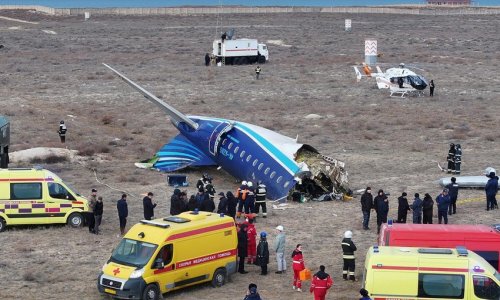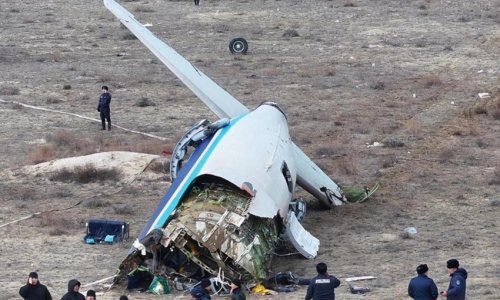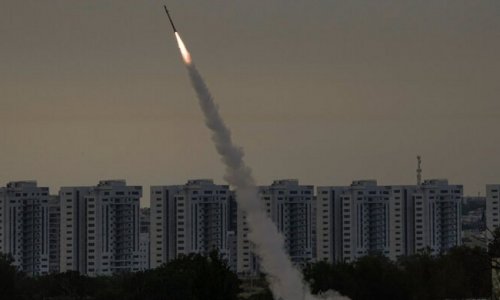What is so disturbing is not just the scale of their involvement — with more than 500 British Muslims now estimated to be fighting for the extremists in Syria and Iraq — but also the depths of their violence.It is no exaggeration to say that the British militants are among the most vicious and vociferous of the recruits to the Islamic State terror network, which aims to establish a medieval-style caliphate in the region.Such murderous conduct must seem incomprehensible to most of us. But having studied the phenomenon of Islamic radicalism, the savagery of these home-grown jihadis comes as no surprise to me.Through a large number of interviews by phone and on social media with these fanatics, I have learned how they have been recruited, and how they have become hardened by the deepening intensity of their movement’s violence.Any initial romanticism about an adventure in the desert, or early idealism about protecting Muslims, is quickly replaced by a pitiless inhumanity and a callous glorification of terror.It is common to describe these young British radicals as ‘brainwashed’. But I dislike using that term because it far too easily absolves them of responsibility for their actions.They know only too well exactly what they are doing. They have consciously decided to immerse themselves in a blood-soaked narrative of vengeance and power, in which they will annihilate their enemies, destroy Western values and ensure the triumph of their perverted, totalitarian version of Islam.Young British Muslims have been drawn to radicalism for decades, but the involvement with the Islamic State marks a new departure, both in the savagery of its methods and its approach to recruitment.In the past, certain hard-line mosques — like Abu Hamza’s notorious complex at Finsbury Park in North London — played the central role in driving impressionable young men towards extremism.But today the mosques and hate preachers are less significant. Now, the internet and social media are the key recruiting tools for the jihadists.What happens is that one young British radical travels to the Middle East, makes contact with the Islamic State network and then, having become embedded with the group, uses online technology to tell his mates in England to join him.This approach is so effective because the pioneer can provide reassurance and encouragement to the others about everything from training to language problems, and as we learned from online conversations last week, even what trainers are suitable footwear.‘If I can do it, so can you,’ is a common phrase used by the individual radicals in the vanguard.A classic example of this individualistic recruitment is that of Ifthekar Jaman from Portsmouth, who in 2013 travelled to Turkey, where he made contact with an agent of ISIS, who enabled him to move to Aleppo in Syria, where the Islamists were engaged in a ferocious battle against President Assad’s regime.In a series of calls back to England, Ifthekar managed to persuade five of his friends from Portsmouth and another three from Manchester to come out and fight alongside him. ‘We are trying to establish the law of God, the law of Allah,’ he declared.In December last year, Ifthekar was killed in Syria, while one of his fellow jihadists, Hamindur Rahman, a 25-year-old worker at the Primark retail store in Portsmouth, died there last month. Before he was killed, I managed to speak to Hamindur over the internet, and he explained to me how he was motivated entirely by his religious commitment. ‘We are not here for the Syrian people,’ he said. ‘This land belongs to Allah, not the people.’ That remark was fascinating because it marked a fundamental shift in attitudes.When, early last year, I first started speaking to the British radicals who had ventured to Syria, they often stressed their humanitarian impulse, their desire to alleviate the suffering of ordinary Syrians. But all that has changed.Today, like Hamindur, they are obsessed with the establishment of a caliphate, or Islamic state.As their religious fanaticism has grown, so has their addiction to violence. I have listened as the British radicals have become more aggressive, more ruthless, more dehumanised.One Twitter stream I came across recently was from a British radical who happily provided a running commentary, as he sat eating in a café, of the flogging he was watching take place in a nearby public square.There are several factors to explain what drives young men raised in Britain to such cruelty.One is the classic macho enthusiasm — characteristic of all thugs and gangsters — to revel in power. In England, Hamindur may only have been a High Street retail assistant. In Syria, he held the power of life and death in his trigger finger.The life of the jihadist might be dangerous, but, to a twisted mind, it is also exciting. One British fighter in Syria posted on Twitter a picture of some home-made explosives with the arrogant, deadly message: ‘I hear that the British Government is worried about what skills I might be learning here.’A second factor is the belief, however warped, that they are doing Allah’s work.The majority of the British jihadists I spoke to genuinely wanted to die in their religious cause, thinking their membership of Islamic State would guarantee them a place in paradise.The accelerating cycle of violence is seen as the route to salvation. Indeed, Hamindur’s father recalled that, in one of his last calls home, his son ‘asked us to pray for him and said he wanted to become a shaheed (martyr) for Allah’. A third vital factor is bare-faced intimidation.The jihadists have escalated their violence so cruelly because they want to inspire real fear in the hearts of their enemies. Shooting their victims in the back of the head is too clinical, too swift. The message of terror must be spread by more gruesome killings.‘I saw the longest decapitation ever and we made sure the knife was sharp,’ one 20-year-old jihadist recruit, Reyadd Khan from Cardiff, wrote online last month. His message was undoubtedly designed to serve as propaganda for his cause.So fanatical is their devotion that, if the Islamic State asked some of these British jihadists to return home and perpetrate a major terrorist attack on our soil, they would undoubtedly try to do so. It is certainly a frightening prospect, and one that could far exceed the July 2005 bombings in its death toll.But the reality is that it will actually be quite difficult for these militants to mount any such terror campaign within mainland Britain, since their movements would be heavily monitored by British intelligence.Indeed, one of the members of the Portsmouth gang who made it back here, Mashadur Choudury, was arrested, tried and convicted.However, I think there are two more serious problems than potential direct terrorist attacks by returning jihadis.The first is the risk that Muslim radicals indoctrinated by the example of their ‘brothers’ abroad might try to carry out an atrocity without even venturing beyond our borders, in an echo of the killing of Lee Rigby.If Britain were to take on more of a military role in Iraq, for instance, by their logic we could be seen as undermining the Islamic State — and so merit a revenge attack.The second is that British citizens in Iraq and Syria, like aid workers, contractors or diplomats, could come under threat.They are easier targets than those within our borders, and hold huge symbolic value. As the story of James Foley has shown, a hostage provides a great deal of political leverage.But whatever their targets, there is no doubt about the lethal intent of the young men who have left these shores with murder in mind.(dailymail.co.uk)Bakudaily.Az
Why the British jihadis fighting in Syria and Iraq are so vicious - VIDEO
World
12:15 | 21.08.2014

Why the British jihadis fighting in Syria and Iraq are so vicious - VIDEO
The murder of American journalist James Foley has further exposed the terrifying role played by British-born radicals in the barbaric jihadist movement.
Follow us !










